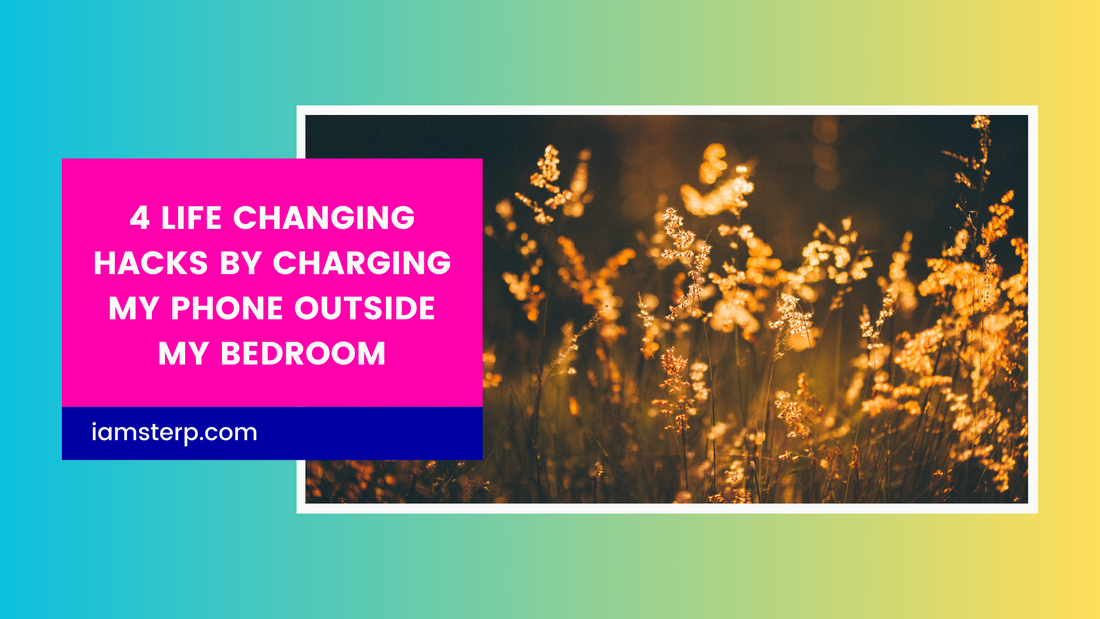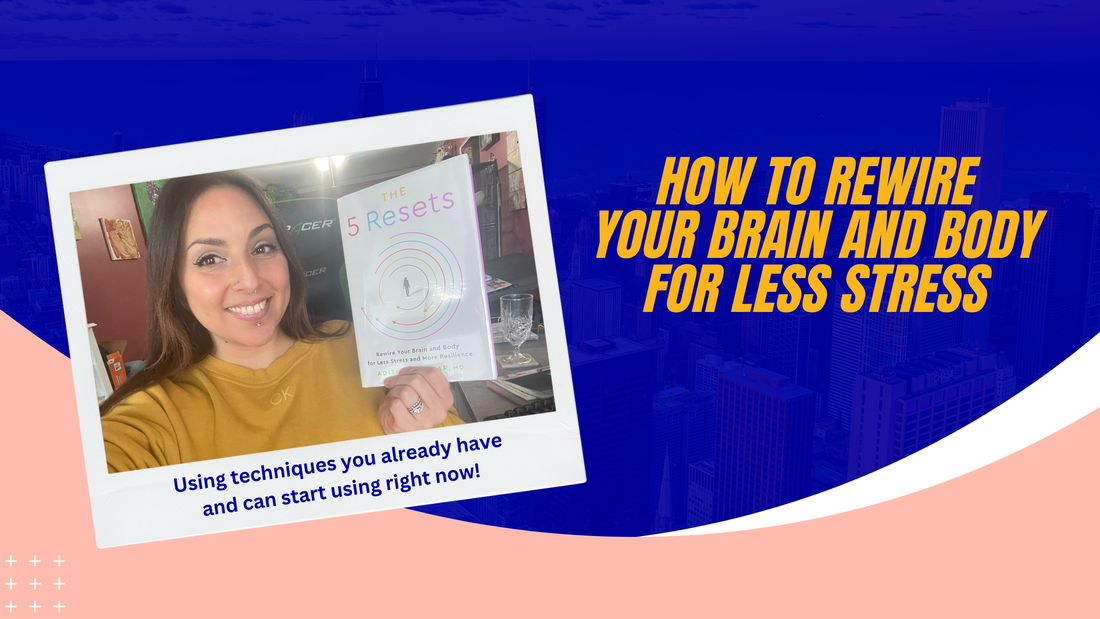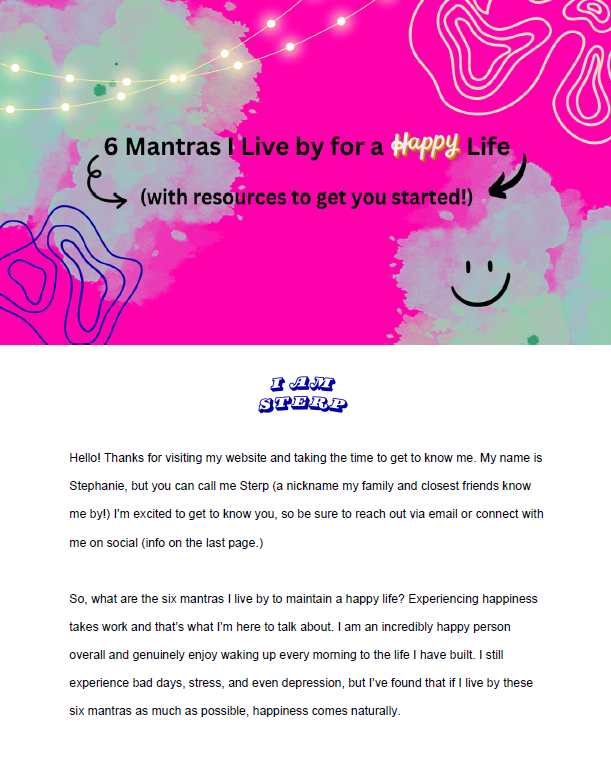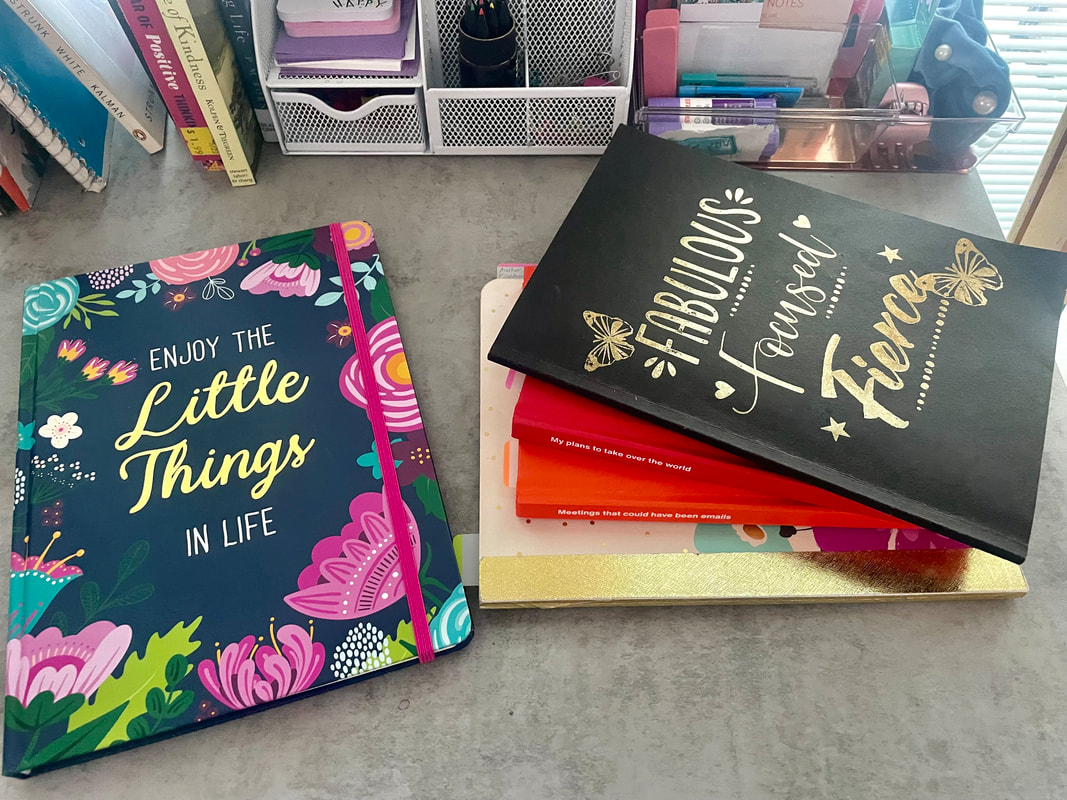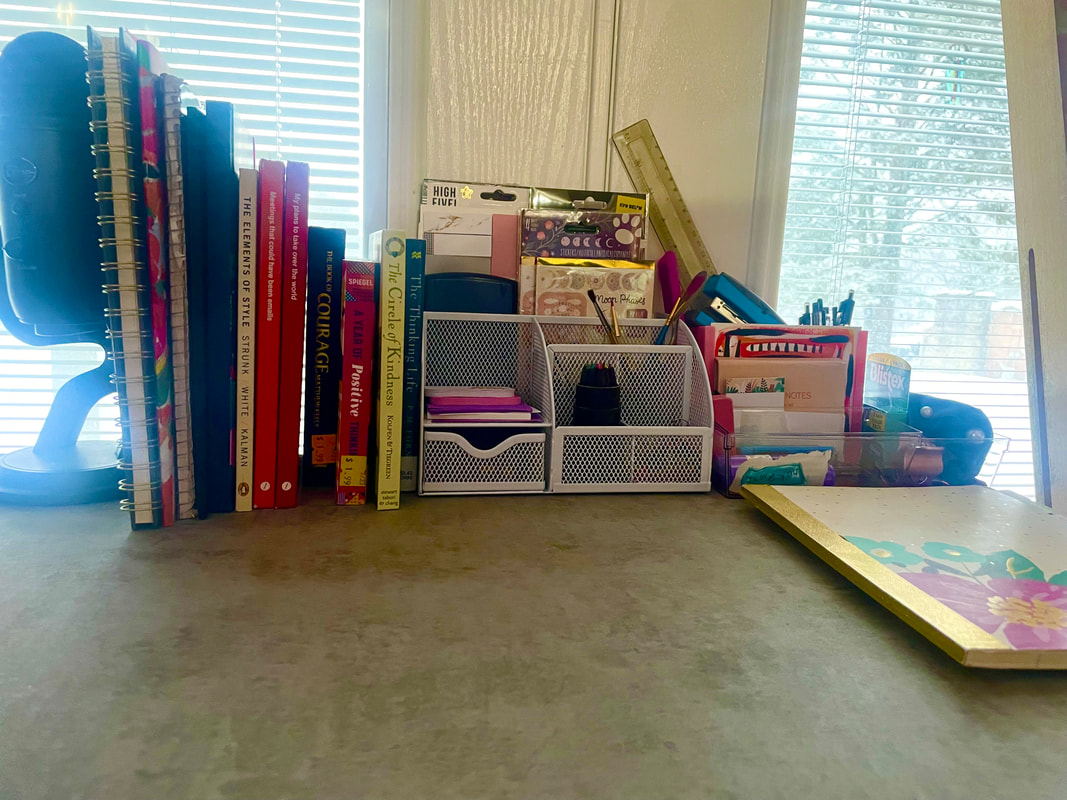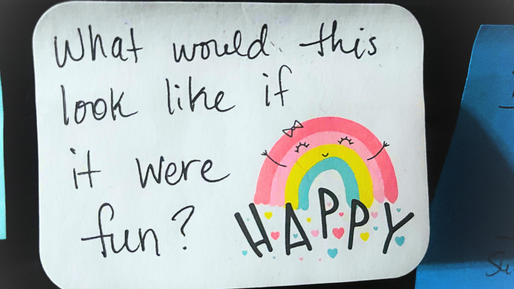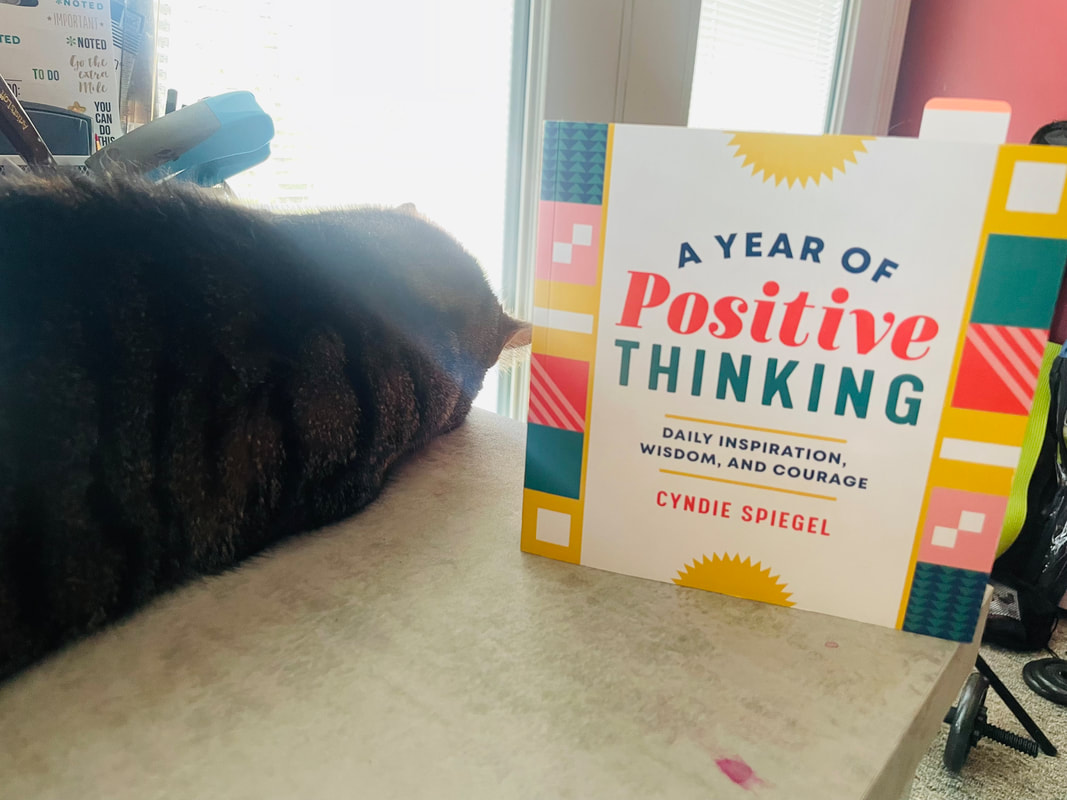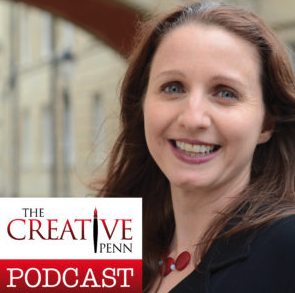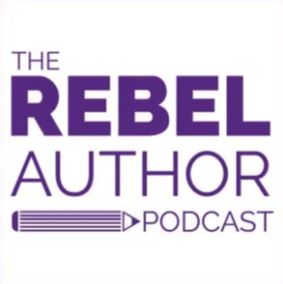|
I’ve learned to hack my brain and body for optimal happiness, less stress and increased resilience…and anyone can do it! You have the tools already ingrained in you. You just have to take the leap and begin with small actions. I recently read and reviewed The 5 Resets: How to Rewire your Brain and Body for Less Stress by Dr. Nerurkar. I read nonfiction with the intention to learn and apply new practices and habits into my life because I always want to improve my state of being. This is why I've started charging my phone outside of my bedroom, and I'm here to share with you the four life changing things that have happened to me because of it. Did you know that by stopping the use of devices in the evening until after you’ve woken up, had a glass of water and a little sunlight - you will begin to rewire your brain and body for less stress because you will get better sleep and have more energy with heightened focus? It is a scientific fact, so why do so many of us not take this simple action? Devices and social media are extremely addictive. It doesn’t matter how intelligent you are either, addiction shows no discrimination. Social media can be a useful tool, however, it’s designed in a way to psychologically rob our brains and hijack our neural pathways. Social media companies want and need you to get addicted and spend as much of YOUR time as possible scrolling and interacting. The problem is devastating to your brain and body. It creates more stress, depression, and decreased energy. I’ve been a victim of the doom scroll. Then, one day, I caught myself and had to ask a tough question: Is this what I want to become? Because, let’s be real, what you spend your time on is who you become. In The 5 Resets, Dr. Nerurkar suggests charging your phone outside of your bedroom at night and not returning to it until the morning, after being awake for some time. I finally took the leap and tried this. Here’s how I do it (seems trivial but this is where people just don’t take the action.)
I’ve been doing this for two weeks now and experienced phenomenal results. Again, free tools that live within each of us. You just have to try it and trust the process. Here are four things that have changed in my life from doing the above steps.
Are you ready to hack your brain for optimal well-being? You have the tools right now, it’s just a matter of taking actionable steps. What are some ways you’ve used neuroplasticity to your advantage to train your mind?
Love ya, Sterp
0 Comments
Happy February dear reader…and you know what that means?! We slayed the first month of 2024. Before we dive into our first February topic of how to rewire your brain and body for less stress - all proven by the book The 5 Resets by Dr. Aditi Nerurkar, MD - I want to say thank you for coming back each month and tuning in. I appreciate you! Because of your friendship and dedicated attention, last month I was inspired to write the FOUR blogs and a free ebook below just for you:
I wrote an ebook for you too! Don’t forget to grab that below to learn about the six mantras I live by every day for peak happiness. Are you ready to learn how to rewire your brain and body for less stress using techniques available to you right now? I read the book The 5 Resets so that I could share with you the techniques I learned to help you achieve less stress and more resilience. Let’s go! I want to start with this quote from the beginning of the book, “We’ve learned to tell ourselves that we’ll engage in self-care at some future time - when we aren’t so busy, when the kids are grown, when we’ve reached a work goal, when the pressure is off, when we have a vacation week, when there’s more money in the bank, when we retire. Regrettably, we give self-care the least attention when we need it most.” Sound familiar? Dr. Nerurkar goes on to say, “Stress is the most common and unifying experience we have as human beings. We’re all living life with the same intensity, but we go through the experience feeling completely alone. We’re completely isolated in our togetherness with stress.” This resonated with me and is what encouraged me to write this blog - to share in our common experience and togetherness with stress. Here’s the great news, backed by science:
So how does the brain respond to stress? It’s crucial we dive into some of the science because first, it’s fascinating, and second, it’ll prove to you how simple it is to rewire your brain. Stress starts in the brain’s hippocampus (our emotional center.) Yes, stress = emotions. But here comes the aha! moment, the hippocampus is also where we learn and create memories. This means, stress is a learned response. This also means, stress can be unlearned. The ability to unlearn and rewire our brains is because of neuroplasticity. All that means is our brains have the ability to change - pretty damn cool if you ask me. It’s that simple and similar to strengthening any muscle (like the glutes, which I’ve been focusing on growing and the hubby feels a difference!) The more you engage in a new habit (taking daily walks, eating broccoli, etc.) the brain creates a pathway for that habit and strengthens that pathway. This is the foundation of the five techniques in this book. Before diving into those five resets, Dr.Nerurkar defines what she calls the Resilience Rule of 2. She encourages us to only make two changes at a time because we are more likely to stick to those changes in the long term. This is why many New Year’s resolutions fail. Example - rather than saying, “I want to lose 20 pounds,” and placing pressure on yourself to heavily restrict your diet and go to the gym - focus on two simple changes to start. Maybe you won’t eat past 7pm and you will go on a daily 20 minute walk. Once you do that for 1 - 2 months, you can introduce another two new items. Here are the 5 resets to practice for less stress and more resilienceReset 1: Get clear on what matters most Dr. Nerurkar suggests uncovering your MOST goal, which stands for: Motivating: a goal that is motivating and within reach, a goal that energizes you Objective: changes you can regularly monitor, no matter how tiny or incremental Small: small enough to guarantee success Timely: time-sensitive, ideally within three months If you’re not sure what matters MOST, the next bit is my favorite. You can discover your MOST goal by asking yourself what five activities did you do as a child that brought you joy and made the hours pass like minutes? Go write it down! Here are mine:
Next, pick two from your list and begin incorporating into your life every day for 15 minutes. Congratulate yourself each day after completing the activity. As you continue to incorporate these activities that bring you joy, your stress will reduce. Reset 2: Find quiet in a noisy world You may not like this one, but it’s so important. It can make or break someone’s chronic stress. “The most detrimental relationship in your life is most likely the thing glowing in the palm of your hand: your smartphone.” You must learn to design digital boundaries. We continue to hear it but refuse to make the change. Decreasing smartphone use leads to improved well-being and sustainable mental health outcomes. It’s FREE to decrease your smartphone use, you just have to be smarter than your smartphone. After reading this, I began charging my phone in my office starting at 9pm. It no longer charges in my bedroom. Did these questions just pop up in your mind, “What about your morning alarm? What if there’s an emergency and someone has to get a hold of you in the middle of the night?” On and on… I am surviving. I use Alexa as my alarm now but I could easily purchase an alarm clock if needed. My husband charges his phone in the room, so any emergency can come through him. I am now on day 5 of doing this and my sleep is starting to improve. I have more creative ideas as well. You should try it. Or commit to putting your phone away when you are spending time with those you love. Reset 3: Sync your brain and body Dr. Nerurkar refers to research from the book, The Blue Zones: Lessons for Living Longer from People Who’ve Lived the Longest. Sounds promising, think I should read that next and share my learnings? In this section, there is emphasis on the science of bringing your attention to your breathing. This is another one we’ve heard time and time again. It’s one I try to teach my family and friends, and yet, they all seem to have the same reaction - not really anything. They nod and move on, never actually incorporating this simple, very easy technique into their lives. It’s disappointing because it’s not until stress causes physical consequences and a doctor says the same thing, and even then people roll their eyes at breath techniques. I walk the walk, and have used breathing exercises before I read this book. The next time you feel overwhelmed and stressed, whether you are running late, having a tense conversation, or even if you’re not stressed and just watching a movie, try the Stop - Breathe - Be method. In your mind, say STOP. Then say to yourself BREATHE, and take a deep breath and slowly let it out. Then say BE, and take a moment to ground yourself in the present. That is it. I focus on my breathing while driving, doing chores, and making my coffee in the morning. It is also a free technique, scientifically proven to reduce your stress and you can start right now. Go ahead, try it. Reset 4: Come up for air Get ready for the myth of multitasking. Our brains function best when they aren’t overloaded. It’s a scientific fallacy that working faster, harder and longer improves productivity. That’s great news! Our brains need to decompress. When we step away for a break, our brain goes through a process called consolidation. Brain consolidation is when new learning and information in our minds gets cemented into pathways for future use. Our brain changes more when we take those needed breaks rather than during learning sessions. This is why multitasking is not at all productive. When our brains multitask, they are task switching and this is detrimental to our brain’s memory and attention. Multitasking can actually slow productivity by 40%. Ready to hear the opposite of multitasking…monotasking. And here’s how you do it using what's called the Pomodoro Technique. Set a timer to work on one task (you can start with 25 minutes or even go 45 minutes.) Once the timer goes off, take a 5 minute break. Start a new timer with a new task. That’s it! I set up my work day this way and it’s been phenomenal. I make progress every day on all my project areas. This method strengthens the prefrontal cortex of our brains, the logical decision making area. Pretty cool right?! Reset 5: Bring your best self forward Part of our unified experience of stress includes our inner critic and self-talk during times of stress. Be honest with yourself, how do you speak to yourself internally? Just this year, I’ve started to change my self-talk into positive words - and I am about to turn 37 next month (insert quote from Kevin Smith’s Clerks, “37!!!”) Another easy and free technique. Notice when you are berating yourself, then stop by using the Stop, Breathe, Be technique and reframe what you said to yourself into something more positive. Another tip the author gives is to start a gratitude practice each day. I know, insert eye roll, but check this out. Calling out your gratitude has been shown to decrease stress, improve mood and improve overall life satisfaction. Again, no cost. You can either think about what you're grateful for each night or write it down. I started writing mine down and have been for four nights now in a row, and I plan to stick to it since my phone is charging out of my room by 9pm. I have only summed up what I learned from the book The 5 Resets. There is so much more great information in this book so be sure to check it out. These techniques are easy wins. I am incorporating them into my life and already see the difference. You only have one life, why live it miserably when you have full control of rewiring your brain and body?
Thanks again for your friendship and readership, Sterp Okay, first off - I’m obsessed with all things for office organization and I have an addiction problem…to notebooks. Here’s the thing, I use all of them so it’s not a wasted endeavor. All my notebooks have a purpose: some capture notes from my daily learnings and others are for my content planning. Now picture this: post-its in all colors. Color palettes for every season, holiday, mood for post-its. Post-its with designed borders. I strive to one day be a person who has post-its all over my house. I started out as an average post-it user, grabbing an occasional one to jot down an important date or message. Then, it stuck to me, just like the adhesive that makes a post-it exist - I needed to write down the deep insights of the inner workings of our being. You get my drift. Those of you who downloaded my free e-book Six Mantras I Live by for a Happy Life, know that one of those mantras is always be learning. (Refresh this page and enter your email in the pop-up to get this free ebook!) Everyday I feed my mind with knowledge in the form of podcasts, books, videos, blogs, etc. The best part of feeding your soul with knowledge is that you’ll hear epic lines dropped, mic dropped quality. When I hear or read a quote that resonates, it’s post-it time! It’s important to me to remember and memorize the lessons I learn each day. So here it is, the current post-it note I have hanging on my desk. What would this look like if it were fun?!I recently heard this while watching Lewis Howes, host of The School of Greatness, interview Ali Abdaal, a medical doctor who left that profession and became a productivity expert. Here’s the interview with Abdaal talking about “what would this look like if it were fun” at timestamp 45:03. This is his advice whenever we are feeling anxious or stressed about tasks where procrastination tries to take over. From completing a mundane task at work to decluttering a room in your home, ask yourself, “what would this look like if it were fun?”
I’ll be putting this to the test over the weekend. My best friend asked for help in cleaning and organizing her art studio. She admitted to me the anxiety and dread of having to complete this, a feeling we are all familiar with. I plan to share this experience with before and after photos of her studio along with an update on how our experiment unfolded, the experiment of asking ourselves “what would this look like if it were fun?” I challenge you, dear reader, to ask yourself this question the next time you are faced with something you know you have to get done but that you are dreading. I have one: I need to write up and publish my blog disclaimer - it seems SO boring but I know it’s necessary. Can you think of something right now in your life that you’ve been procrastinating on? Tell me in the comments and what’s your idea of what it might look like if it were fun? I frequent the local Goodwill store. The journey of the thrift hunt brings joy. And sometimes, another person’s junk becomes a small treasure. One of those small treasures landed in my hands, a book titled A Year of Positive Thinking. There is an excerpt for every day of the year.
Today’s reads: Nurture Relationships of Integrity “You do not need to have the same interests or personalities as those you surround yourself with. What matters is that you connect from your heart and that you value the integrity of your connection equally. Sustain relationships that take you outside your comfort zone; they will support your growth. Foster these friendships and they will bring you more joy, love, and connection than you ever knew possible. Relationships built of integrity will carry you through both the best and the worst of times. Always create space for them.” It wasn’t until I moved across the country, born and raised in the west coast and then packing up and moving to the east coast in 2020, that this concept of nurturing relationships of integrity really began to matter. I guess loneliness will do that. I am grateful for the new friendships that have been planted in my life and continue to grow. The people I choose to surround myself with on a weekly basis all inspire me to be the best version of myself. The people I choose to surround myself with, continue to teach me other perspectives, motivate me to be the artist that I am, and look to the future of what we are to become. As you reflect on today’s positive thinking excerpt above, written by Cyndie Spiegel, ask yourself, who do you choose to surround yourself with? Why are you grateful for those relationships and what do they continue to teach you? On a last note, never discount the joy of thrifting. -Sterp |
Categories
All
PODCASTS I LISTEN TO EVERYDAY |
